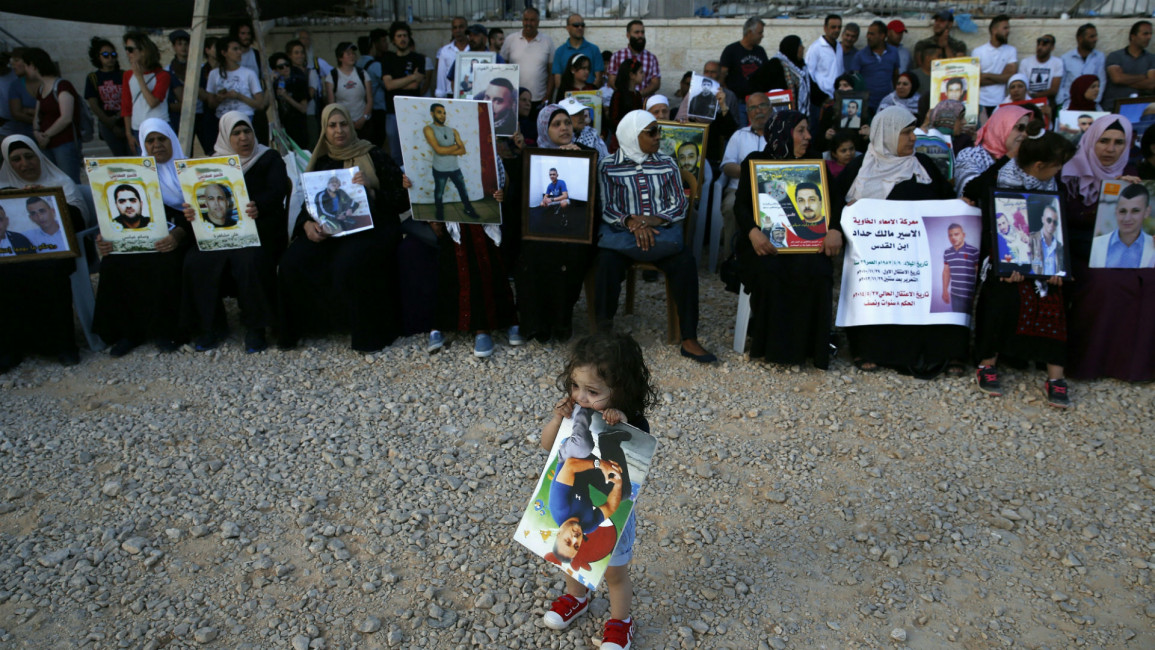Israel places hunger striking Palestinian prisoners in solitary confinement
Israeli prison administration is applying solitary confinement on Palestinian prisoners who have been on hunger strike for more than nine days, human rights groups affirmed.
The hunger strike had been started by 200 Palestinian prisoners belonging to the Palestinian Islamic Jihad - PIJ, in protest against punitive actions taken against them by the Israeli prison administration following the Gilboa prison break in early September.
Palestinian prisoners starting mass hunger strikes today in protest at systematic abuse in Israeli jails. It’s a last ditch cry for help from a ppl whose lives have been crushed under the jackboot of Israeli fascism. Love & solidarity. #FreePalestine pic.twitter.com/fmXsi1F0ni
— GhostofDurruti (@RobTheRich0001) October 13, 2021
According to Addameer prisoners’ support association, at least 20 Palestinian hunger strikers are in solitary confinement in the Negev prison.
Ehteram Ghazaneh, head of the documentation unit at Addameer told The New Arab that the association’s lawyers were able to visit three of the isolated prisoners, Abdallah Ardah, Abed Ubeid and Muhannad Sheikh Ali.
Ghazawneh explained that “they are held in very difficult conditions. They are shackled all the time, deprived from using any personal belongings or changing their clothes, without visits and without any human contact except with their jailers”.
The Palestinian prisoners’ club spokesperson, Raed Amer confirmed that three female prisoners in the Damon prison who joined the hunger strike were also placed in solitary confinement.
The three women are Amal Taqatqah, Shatila Abu Ayad and Muna Qaadan. Amer told The New Arab that “the female hunger strikers are isolated in empty individual cells without any contact, which makes it difficult to know their current situation”.
Muna Qaadan’s brother, Muawiah Qaadan, affirmed to The New Arab that his 50-year-old sister is in Israeli prison for the sixth time, and that she has been detained for seven months without sentence.
“Muna has gone through hunger strikes in the past”, Qaadan pointed out, “she is diabetic and has blood pressure problems. We, in the family, are confident of her determination, but are very worried for her health as well”, he added.
A rally in Jabalia camp in Gaza in support of prisoners: https://t.co/y3CES1UOv0
— Samidoun Network (@SamidounPP) October 20, 2021
Meanwhile, Palestinians in the west Bank and Gaza have rallied in support of prisoners on hunger strike. In the Jenin refugee camp, a tent was set up to host permanent sit-ins in support of the hunger strikers.
In Ramallah and Hebron, hundreds rallied in support of the hunger strikers over the past week, as well as in Jabalia, in the Northern Gaza Strip.
Students at Birzeit University, north of Ramallah, stopped classes on Monday and performed a stand in at the campus in support of hunger strikers.
Palestinian prisoners have been protesting Israeli punitive actions following the Gilboa prison break since mid September.
PIJ prisoners began protesting their transfer apart from each other by setting their cells on fire.
Over the past weeks, some 400 PIJ prisoners have been disobeying morning count and refusing to go out of their cells except if shackled.
Last week, 200 of them entered a collective, open hunger strike, demanding the revocation of all punitive action against them.
The spokesperson of the PIJ’s prisoner care association, Tamer Zaanin, said on Tuesday that all PIJ prisoners may join the hunger strike in the coming days, which could prompt prisoners from other Palestinian factions to join in too.



